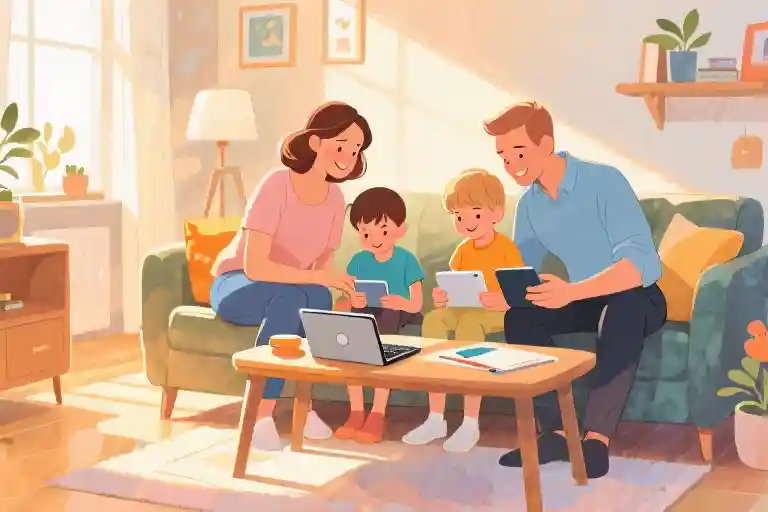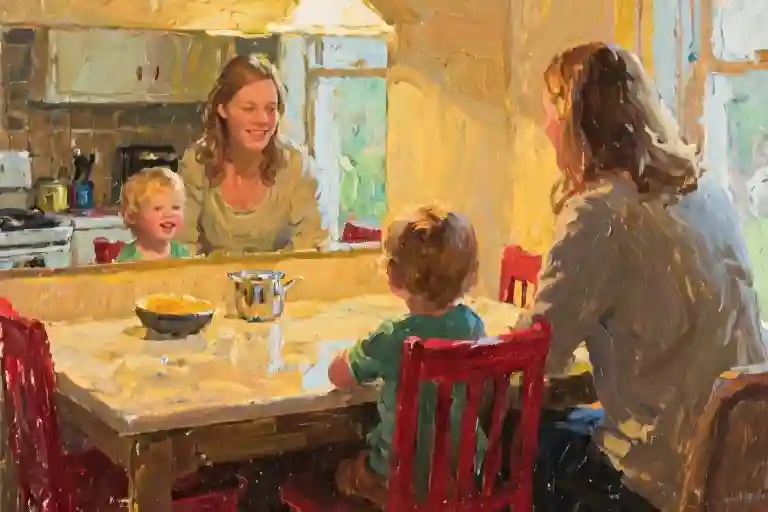The moment my knees start protesting and that familiar twinge creeps into my lower back, I know we’ve crossed the invisible threshold between ‘reasonable drive’ and ‘marathon session of automotive torture.’ Ten hours in a car seat should qualify as some form of medieval punishment, complete with leg cramps that make you question basic life choices and that peculiar burning sensation behind the eyeballs – as if your optic nerves decided to take up smoking during the journey.
Yet here’s the strange alchemy of middle-aged travel math: reduce that same trip to six hours, and suddenly I’ll volunteer to add ninety minutes for a detour to some obscure vineyard. There’s a perverse pleasure in pointing the car toward a town whose name you can’t pronounce, just to sample local wines that’ll probably taste like fermented regret. The Devil’s Elbow Vineyard off Route 220? Absolutely worth the extra mileage, if only to stretch legs that have begun fusing with the upholstery.
We’d just made the return pilgrimage from Bath County to Greenville yesterday, the backseat suspiciously empty after six weeks of containing our granddaughter’s orbit of stuffed animals and half-eaten snacks. The absence of crushed Goldfish crackers in the seat crevices felt somehow wrong, like the car had lost its purpose. My wife kept glancing at the rearview mirror out of habit, still half-expecting to see a pair of tiny feet kicking the back of her seat in rhythm to some preschooler song only she could hear.
That’s the cruel arithmetic of grandparenting – the same weeks that leave you fantasizing about silent car rides also etch phantom laughter in your ears. You find yourself missing the chaos even while your nervous system still vibrates from six weeks of non-stop negotiations over vegetable consumption and shoe selections. The living room bears both the scars of crayon masterpieces on the walls and the eerie neatness that feels more like a crime scene than a sanctuary.
What nobody prepares you for are the twenty-foot battles that somehow consume thirty minutes of diplomatic energy. The journey from back door to car seat with a three-year-old makes the Oregon Trail look like a straight shot down an interstate. There are leaves that must be collected (but only the crunchy ones), shoes that transform into instruments of torture the moment they’re fastened, and sudden existential crises about why we can’t wear pajamas to the grocery store. “Because people will think Grandma’s gone peculiar,” never seems to satisfy as an answer.
And just when you’ve navigated the minefield of toddler logic, the family dog – that traitorous fur-covered anarchist – will choose that exact moment to bolt between your legs with whatever forbidden item the child dropped three negotiations ago. The triumphant gleam in a preschooler’s eyes when they realize the dog has absconded with their half-eaten toast is enough to make you consider moving to that vineyard permanently…
Sometimes a three-year-old and a golden retriever…
The Strange Arithmetic of Road Trips
My lower back starts its protest at the mere thought of a ten-hour drive. There’s that familiar twinge near the tailbone, the phantom leg cramps that haven’t actually arrived yet, and the peculiar burning sensation behind my eyes that makes me squint at highway signs long before they’re legible. I’ve developed an entire catalog of physical grievances reserved exclusively for extended time behind the wheel.
Yet here’s the curious thing – suggest a six-hour journey and suddenly I’m the one proposing detours. That roadside antique mall with the peeling paint? Absolutely worth inspecting. The vineyard that adds forty-three minutes to our trip but promises “the best Merlot this side of the Blue Ridge”? How could we not? There’s an alchemy that happens around the four-hour mark where my resistance melts into something resembling adventurousness. Maybe it’s the rhythm of the tires on asphalt, or perhaps just the stubborn refusal to acknowledge that middle age has made me less flexible in both body and spirit.
Last week’s return trip from Bath County exemplified this peculiar duality. We’d just spent six weeks immersed in the beautiful chaos of grandparenting – mornings dictated by a three-year-old’s whims, afternoons spent negotiating nap times, evenings collapsing onto the couch with the particular exhaustion that comes from being loved so fiercely by small humans. The car should have felt like an escape pod, a return to adult autonomy. Instead, the silence between us felt too large, the absence of car seat chatter unnerving.
Somewhere near the Virginia-North Carolina border, we passed a hand-painted sign for Devil’s Elbow Vineyard. The name alone warranted investigation. The gravel parking lot held three pickup trucks and a motorcycle with a sidecar – exactly the right amount of questionable for an impromptu wine tasting. Inside, the pourer wore overalls and called everyone “honey” while explaining how the 2018 Cabernet Franc had “notes of blackberry and regret.” We bought two bottles we’ll probably never open, simply because the detour felt like a small rebellion against our own practicality.
That’s the secret math of road trips I’ve come to understand: subtract four hours from the total drive time and suddenly you’re left with just enough margin for whimsy. The body still complains, but the spirit remembers how to wander.
The Bittersweet Math of Grandparenting
Six weeks. That’s how long we’d been immersed in the beautiful chaos of full-time grandparenting. The calendar pages had turned from summer into early fall, marked not by changing leaves but by the accumulating evidence of a three-year-old’s reign – crayon masterpieces on the refrigerator, a trail of stuffed animals forming a menagerie from living room to bedroom, and that mysterious sticky spot on the kitchen floor that reappeared no matter how often we mopped.
There’s a particular arithmetic to extended stays with grandchildren. The first three days feel like vacation – all ice cream for dinner and staying up past bedtime to watch just one more episode of that animated show about talking trucks. By week two, routines emerge alongside the realization that tiny humans operate on a different temporal plane where ‘five more minutes’ can stretch into half an hour of negotiations. Come week four, you start doing the math – not just counting down days until school resumes, but calculating the precise ratio of joy to exhaustion that makes your knees creak a little louder each morning.
Our granddaughter’s departure always leaves the house feeling unnaturally quiet. The absence of sudden giggles or impromptu dance parties creates a vacuum that even the television can’t fill. I catch myself staring at the dent in the couch cushion where she’d curl up for storytime, running my fingers over the crayon marks on the coffee table that we’d promised to clean but somehow never did. These become sacred relics of her presence, until suddenly they’re not – until the third time you stub your toe on that abandoned toy fire truck and the sentimentality wears thinner than the elbows on her favorite sweater.
Packing up her things becomes an exercise in emotional whiplash. Folding tiny socks sparks nostalgia; discovering half-eaten crackers in unexpected places less so. There’s the stuffed elephant she can’t sleep without (must remember to mail that), the hairbrush with more of her blonde strands than bristles (do we keep it as a keepsake?), and the inevitable single puzzle piece that surfaces after her departure (will she even remember this toy next visit?). Each item carries disproportionate weight, transforming simple housekeeping into an archaeological dig of childhood ephemera.
What nobody tells you about grandparenting is how physical the love is – not just in the hugs and piggyback rides, but in how it settles into your bones. The way your arms remember the exact weight of a sleeping child long after they’ve grown too big to carry. How your ears remain tuned to certain pitches of laughter or distress even when she’s three states away. And how your back, despite all complaints, will always bend just a little further to retrieve that dropped pacifier or tie those impossibly small shoelaces.
Yet for all the aching muscles and sleepless nights, there’s an equally physical relief when quiet returns. The guilty pleasure of drinking coffee while it’s still hot, of not having to strategize bathroom breaks around naptimes, of watching the evening news without explaining why people on TV are angry. This duality never gets easier to reconcile – missing them deeply while simultaneously craving the simplicity of an unchildproofed existence.
Perhaps this is why the car ride home always feels longer than the mileage suggests. The road stretches not just through geography but through emotional terrain, passing landmarks of recent memory – the park where she mastered the big-kid swing, the diner where she insisted pancakes taste better when shared, the stretch of highway where her endless ‘why’ questions about cloud formations made us rediscover ordinary wonders. By the time we cross the state line, we’re already planning our next visit, even as our bodies gratefully anticipate a night without midnight requests for water or impromptu bed-sharing from a small person who somehow occupies all available mattress space.
The math never quite balances. The credits of patience and energy always outweigh the debits of frustration. Yet we keep showing up, keep bending those creaky knees, because the currency of sticky-fingered hugs and unprompted ‘I love yous’ converts to a wealth that retirement accounts can’t match. And if we occasionally count the days until quiet returns? That’s just the honest arithmetic of love.
The 20-Foot Toddler Negotiation
Parenting, at its core, is the art of losing arguments to someone who thinks ketchup is a food group. The twenty feet between our back door and the car might as well be a marathon course when you’re dealing with a three-year-old. What should take thirty seconds becomes a thirty-minute odyssey of negotiations, detours, and sudden philosophical crises about footwear.
First, there’s the Great Coat Rebellion of 2023. “I’m not cold,” declares the tiny dictator, despite visible goosebumps, as if her declaration could alter atmospheric reality. Then comes the Shoe Ultimatum – why wear matching shoes when you can pioneer the avant-garde look of one rain boot and one ballet slipper? Halfway to the car, we’ll inevitably discover some critical oversight – perhaps the sudden need to bring her ‘magic’ remote control (a broken garage door opener) or the sacred half-eaten cracker from yesterday’s snack time.
Generational bonding reaches its peak during these moments. My husband and I develop elaborate bargaining techniques that would impress UN diplomats. “If you get in the car now,” I whisper conspiratorially, “we’ll let you press all the elevator buttons at the doctor’s office.” Sometimes bribery works. Sometimes she looks at me with the weary disappointment of a seasoned negotiator who knows her leverage.
The dog, sensing weakness, inevitably joins the fray. What begins as a simple departure becomes a surreal ballet – the toddler insisting on walking backward while clutching my leg, the dog zigzagging with his leash wrapped around us both, and me trying to remember why we ever thought leaving the house was necessary. In these moments, family travel tips seem like cruel jokes written by people who’ve never actually traveled with small humans.
There’s a particular madness to toddler tantrums that defies all preparation. You can have the snacks packed, the favorite toy ready, the car seat pre-warmed – none of it matters when they decide today is the day to wage war against seatbelt technology. The emotional toll of parenting becomes tangible as you crouch in some parking lot, negotiating with someone who believes stickers are valid currency.
Yet in these twenty feet of chaos, I find myself cataloging absurd details I’ll miss someday – how her small hand feels clutching mine (even when she’s trying to escape), the ridiculous things she insists are treasures (a pinecone! A crumpled receipt!), the way she pronounces “actually” with such gravitas. Realistic family life isn’t about perfect outings; it’s about surviving them with enough humor to want to do it all again tomorrow.
Sometimes a three-year-old and a dog… well, you know how it goes. The car eventually gets loaded, the seatbelt eventually gets clicked, and we drive off with the backseat chatter that makes all the negotiations worthwhile. Mostly.
The 20-Foot Toddler Negotiation
Sometimes the greatest journeys aren’t measured in miles, but in the twenty feet between your back door and the car. That short stretch of pavement becomes an obstacle course when you’re herding a three-year-old – part marathon, part hostage negotiation, part improv comedy routine.
There’s an art to these daily standoffs. First comes the shoe debate, which isn’t actually about footwear but about testing the boundaries of reality itself. ‘Why can’t I wear pajamas to the grocery store?’ becomes an existential question about social norms. Then there’s the sudden fascination with pebbles along the walkway – each one requiring inspection, classification, and sometimes tearful farewells. Halfway to the car, an urgent need to use the bathroom emerges, despite having just spent fifteen minutes refusing to try before leaving.
Our granddaughter travels with the efficiency of a Victorian explorer – a ‘magic’ remote control (her term, not mine) in one hand, half a petrified graham cracker in the other, and at least three stuffed animals wedged under her arm. The dog, sensing weakness, circles like a furry shark, waiting to steal whatever item she inevitably drops. The whole production makes me nostalgic for the days when my biggest road trip concern was lower back pain.
What they don’t tell you about grandparenting is how physical exhaustion and emotional ache can coexist so peacefully. After six weeks of daily negotiations over vegetable consumption and appropriate playground behavior, your body craves silence the way a marathoner craves carbohydrates. Yet the moment her car seat disappears down the driveway, you find yourself staring at the half-eaten string cheese left on your coffee table like it’s some sacred relic.
These are the contradictions that make family life so strangely beautiful – the way frustration and devotion share the same mental real estate, how a single ‘Why?’ at 7 AM can simultaneously make you want to scream into a pillow and marvel at the human capacity for curiosity. Sometimes a three-year-old or a dog or… well, you know how it goes. The story never really ends, just pauses occasionally for gas station snacks and emergency diaper changes.





